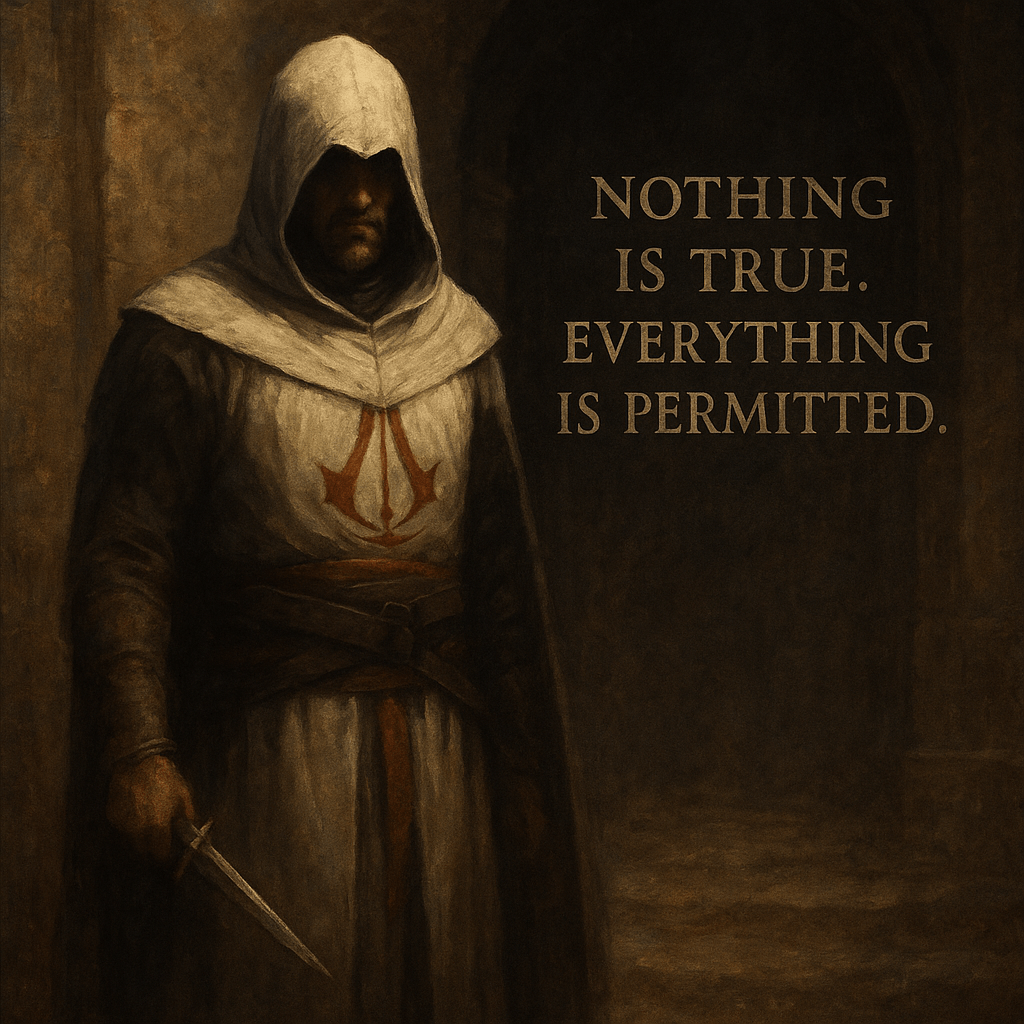A Sovereign Reflection Across Time — Part II: Hassan-i Sabbah and the Blade of Awareness

High in the Alamut mountains of Persia, veiled in mist and silence, a legend was born. Not of brutality—but of precision. Not of chaos—but of clarity.
The Nizari Ismailis, known to history as the Hashashin, or Assassins, became one of the most feared and misunderstood brotherhoods in history. Western accounts often describe them as shadowy murderers, high on hashish, fanatically loyal to their leader. But beneath these distortions lies something deeper, something rarely spoken:
They were sovereign. And they remembered.
The Myth and the Man
Hassan-i Sabbah, the master of Alamut, was no mere warlord. He was a mystic, a mathematician, a strategist—and above all, a disrupter of empire. He understood that the most dangerous weapon was not a dagger, but an idea carried by a fully aware being—one who sees through illusion and no longer plays by imposed rules.
The Hashashin didn’t operate by numbers or brute force. They operated through perception. One targeted death could unmake the illusion of power far more effectively than a battlefield.
And at the heart of their teaching was a phrase—whispered, guarded, and perhaps never intended for the world at large:
“Nothing is true. Everything is permitted.”
Not a Creed—An Initiation
This phrase was not a motto of anarchy. It was a threshold. A spiritual and perceptual initiation.
It meant: All that you believe is a veil. Everything you’ve called reality is a construct of agreements—social, religious, mental, emotional. And once you see through the illusion, you are free—not to destroy, but to choose.
This was not lawlessness. This was liberation.
Altered States, Expanded Awareness
Some accounts—originating from their enemies or fearful chroniclers—suggest that the initiates used hashish to simulate paradise. But the deeper truth may lie elsewhere: in the intentional use of altered states to dissolve programmed identity and reawaken presence.
To be initiated was to be broken open—to see beyond the veil of creed, culture, fear. The assassin returned not as a killer—but as one who could never again be deceived.
This was not a brotherhood of death.
It was a sanctuary of lucidity.
Assassin as Gnostic
In many ways, the Hashashin were the Gnostics of the East. They practiced in secret. They held inner knowing above doctrine. They honored lineage, yet surrendered to presence.
They did not serve any worldly authority.
Not caliph, not king. Not priest, not preacher.
They served what they knew.
And this made them impossible to control.
Because a sovereign being cannot be bought, blackmailed, or broken.
They simply see.
The Real Threat to Empire
Empire fears only one thing: the being who no longer believes in it.
The Hashashin were not dangerous because they killed.
They were dangerous because they remembered.
They remembered that truth cannot be imposed—
that awareness cannot be legislated—
and that God—if the word is used at all—cannot be contained in a book or a building.
Their enemies painted them as fanatics. But perhaps they were simply clear. Silent. Precise. Awake.
The Phrase Revisited
Nothing is true. Everything is permitted.
Not because there is no meaning—
But because meaning is chosen.
Not because there is no morality—
But because morality arises from awareness, not obedience.
Not because anything goes—
But because the sovereign one sees what serves, and acts from stillness, not survival.
The Sovereign Assassin in You
You do not need a blade. You do not need a fortress. You do not need a master.
You only need to see through the game.
When you do, something ancient stirs.
Something that does not ask permission to breathe.
And that is what they tried to erase.
Not an order. Not a tactic.
But a knowing.
The Sovereign Assassin lives on—not in shadow, but in the one who dares to see.
And so, the breath returns.
